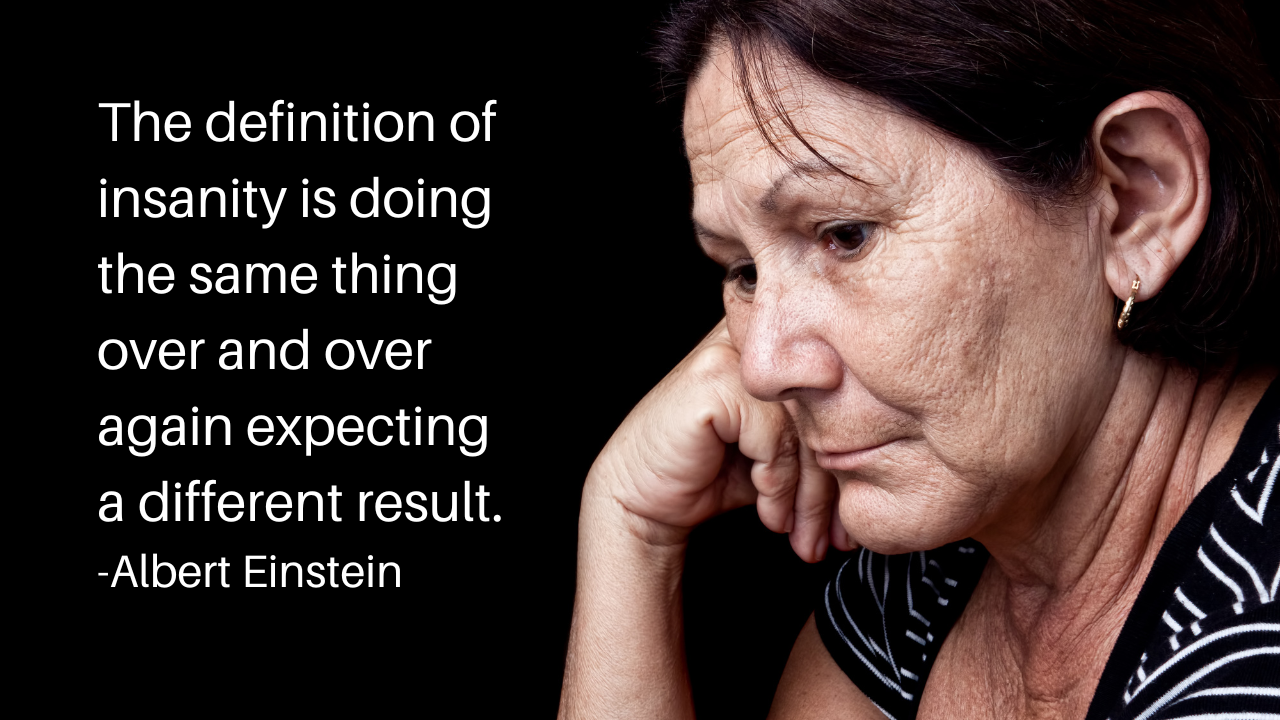Recognizing if you have a drinking problem

Alcohol eventually took me down. Yet, with my life crumbling around me, I still did not think that drinking was the problem--quite the opposite. I believed alcohol was helping me to cope, and without it, I would die. My problem, I thought, was I needed to get a better handle on my drinking. As if twenty years of trying wasn’t proof enough.
This blind spot is something virtually all alcoholics have. Around the world, no matter what language you speak or the culture you come from, the symptoms of addiction affect people the same, and denial is one of them.
In this article, I ask six questions that relate to other common symptoms of addiction. See which ones you relate to. If you are tossing the idea around about quitting drinking, the first step is to break through the wall of denial and admit to yourself that you have a problem.
1. Do you have a difficult time stopping?
Have there been situations where you ended up drinking more than you intended? Have you tried to cut back or quit entirely but haven’t been successful? Do you have the urge or craving to drink more once you start? Have you gotten into situations while drinking that increased your chances of harming yourself or others, such as drinking and driving? If yes, these questions are included in the Diagnostic and Statistical Manual of Mental Disorders (DSM) to diagnose alcohol abuse.
2. Do you feel guilty about drinking?
When I was active with my addiction, I lived in a world of peaks and valleys, ranging from intense euphoria to devastating lows rife with guilt, shame, and self-loathing. If you can relate, you are not alone. Research studies going back to 2004 conducted by the United Nations Office on Drugs and Crime report that guilt and shame are the NUMBER ONE issue worldwide for women who struggle with addiction.
3. Do you obsess about drinking?
Sometimes a person can be dependent on a substance without being addicted. For example, someone who leaves the hospital after being administered an opiate painkiller may become physically dependent if taken long enough. But if the person is not susceptible to addiction, they don’t have the psychological obsessive and compulsive behaviour that drives the individual to use despite negative consequences. They may need detox, but they will be glad the medication is no longer in their system. That is not what I am talking about. By the time I quit, I thought about drinking from the first second in the morning until the last thought at night. If I wasn’t thinking about drinking, I was thinking about quitting drinking. If my house was burning down, I would fixate on the bottle of wine chilling in my fridge.
4. Do you continue to drink despite negative consequences?
The prioritization of drinking above other obligations is a major red flag. When drinking and thinking about drinking occupies the number one slot, you can no longer think rationally. The main priorities for many include family and financial obligations, relationships, and personal health and self-care. Missing work, family responsibilities, and broken promises affect all your relationships and aspects of life.
5. Have your drinking patterns changed?
As time goes on, you may need to drink more to get the same buzz. With more alcohol comes the worsening of hangovers and blackouts. When I started drinking, I had a strong tolerance for alcohol and could consume large quantities and still appear sober. I weighed like 100 lbs and could drink big men under the table. I remember feeling proud that I was good at something. That all began to change as my addiction progressed. At the end of my drinking, I could physically barely tolerate alcohol and was blacking out after one and two drinks.
6. Do you rationalize and cover up for your drinking?
I would have chased a rolling bottle down the street if it fell out of my purse yet be very defensive if someone questioned or commented on my drinking. Friends or family may express concern about your overall health, but you brush it off. This behaviour is typical of someone who has a drinking problem.
How much and how long you have been drinking will determine the complexity of the problems you may be experiencing. Addiction can progress quickly or slowly, depending on a number of factors. However, one thing is certain; one symptom will snowball into another and add to the complexity of challenges you experience.
Remember, the first step to quitting is recognizing and admitting to yourself that you have a problem. The only person who can stop this cycle is YOU.
Please let me know in the comments below if you resonate with any of the symptoms. I would love to hear back from you!
If you are thinking about quitting and have been drinking large quantities of alcohol for a significant time, withdrawal symptoms can be life-threatening. Please talk to your doctor and seek medical care as you go through the detox process. It is important to note that addiction may also mask mental health disorders that someone is drinking to self-medicate, such as depression or anxiety.
Next GendHer Intake
Keep me updated

